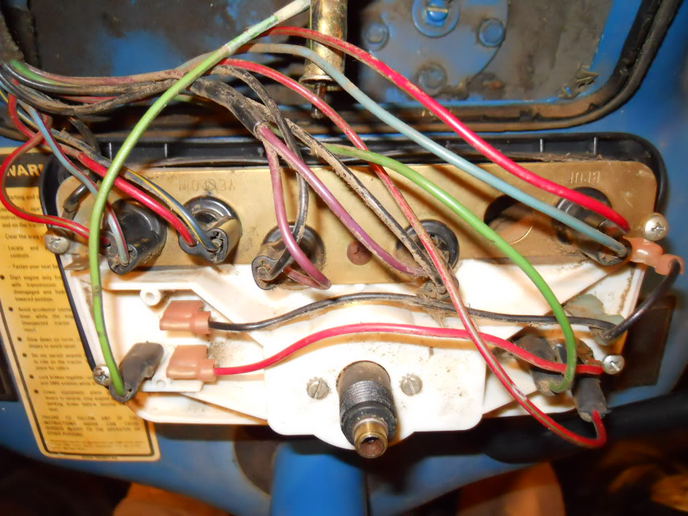When it comes to troubleshooting electrical issues in a Ford 4000 tractor, having access to a reliable wiring diagram is essential. A Ford 4000 Instrument Cluster Wiring Diagram provides a detailed schematic of the electrical system, showing how various components are connected and powered. This information is crucial for understanding the inner workings of the instrument cluster and diagnosing any potential problems.
Why Ford 4000 Instrument Cluster Wiring Diagrams are essential:
- Helps identify connections between components
- Assists in locating potential wiring faults
- Aids in understanding the overall electrical system
How to read and interpret Ford 4000 Instrument Cluster Wiring Diagram:
Reading and interpreting a Ford 4000 Instrument Cluster Wiring Diagram may seem overwhelming at first, but with some guidance, it can become much easier. Here are a few tips to help you navigate the diagram effectively:
- Start by familiarizing yourself with the key symbols and color codes used in the diagram
- Follow the wiring paths from component to component to understand how they are interconnected
- Pay attention to the legend or key provided with the diagram to decipher any abbreviations or special markings
Using Ford 4000 Instrument Cluster Wiring Diagram for troubleshooting:
When faced with electrical problems in your Ford 4000 tractor, a wiring diagram can be a valuable tool for troubleshooting. By following the wiring paths and identifying potential faults, you can pinpoint the root cause of the issue and make necessary repairs. Here are a few ways in which a wiring diagram can be used for troubleshooting:
- Locating a short circuit or open connection
- Testing continuity between components
- Verifying proper voltage levels at various points in the circuit
It is important to remember that when working with electrical systems and using wiring diagrams, safety should always be a top priority. Here are some safety tips and best practices to keep in mind:
- Always disconnect the battery before working on any electrical components
- Use insulated tools to prevent electrical shock
- Avoid working on electrical systems in wet or damp conditions
- If you are unsure about a particular wiring diagram or electrical repair, seek the help of a professional mechanic
Ford 4000 Instrument Cluster Wiring Diagram
Ford 4000 Instrument Cluster Wiring Diagram

Wiring Diagram Ford 4000 Tractor – IOT Wiring Diagram

4000 ford tractor diesel wiring diagrams – Wiring Draw And Schematic
Ford 3000 Instrument Panel Wiring – Yesterday's Tractors

4600 instrument cluster wiring – Ford Forum – Yesterday's Tractors

Ford Instrument Cluster Wiring Color
